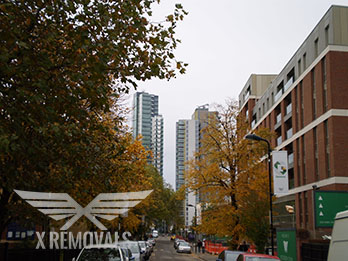23
Apr
Coping with the depressions from a home removal
The stress, strain and hassle of a removal are likely to take your toll on you. Studies show that nearly a third of every person who has recently gone through a home relocation suffers from some form of a post-removal depression. If you can identify the factors that are likely to lead to such an unpleasant experience, you can better prepare to fight them off.
 Things that cause post-removal depression might be varied, but the most often cited ones include:
Things that cause post-removal depression might be varied, but the most often cited ones include:
- The toll such a change causes to your family. If you are moving with a partner and/or children, there would be many changes for your family, some of which might not be that pleasant. Your partner will have to find another job, and your kids will attend a new school where they would not know anyone and would be away from their friends. Every problem that might arise along the way – difficulties in the job-searching, problems with integrating in the new school environment – would lead to internal strain in the family, which potentially leads to depression.
- Climate changes inevitably lead to mood swings. That is particularly true for those instances when you are moving to a place with harsher weather. It might be hard for you to adapt, especially during the first year.
- Another frequent cause for post-removal depression is the culture shock. Moving to a community that is radically different from what you are used to might not be the most pleasant experience. In today’s world, not only countries vary from region to region, but cities too. For example North London is particularly much different from South London, and even within a single borough districts are different.
So, bearing those and other factors in mind, the question arises how can you best address these issues without jumping into the depths of depression. There are several things that are going to help you:
- Patience – remind yourself why you have moved home and work hard to achieve the goals you have made for yourself and your family. You may need time to adapt, so do not expect everything to happen overnight.
- Stay in touch with friends and people you love. They will provide you with the support and outsider’s advice you much need right now, in this turbulent time of transition. Also focus on your family. Difficult times can damage family dynamics, but if you make the effort they will strengthen the bond you have and give you the necessary energy to overcome the troubles.
- Get to know new people. No matter whether you make friends with colleagues, neighbors or you start practicing a sport in a local club, new people and relationships will help you battle depression.
- Get to know your new place of residence better. Explore the area and find out which aspects of it would make you fall in love all over again. Experiments like finding a new hobby or sport would also be very beneficial to your overall mental state.

Sorry, the comment form is closed at this time.